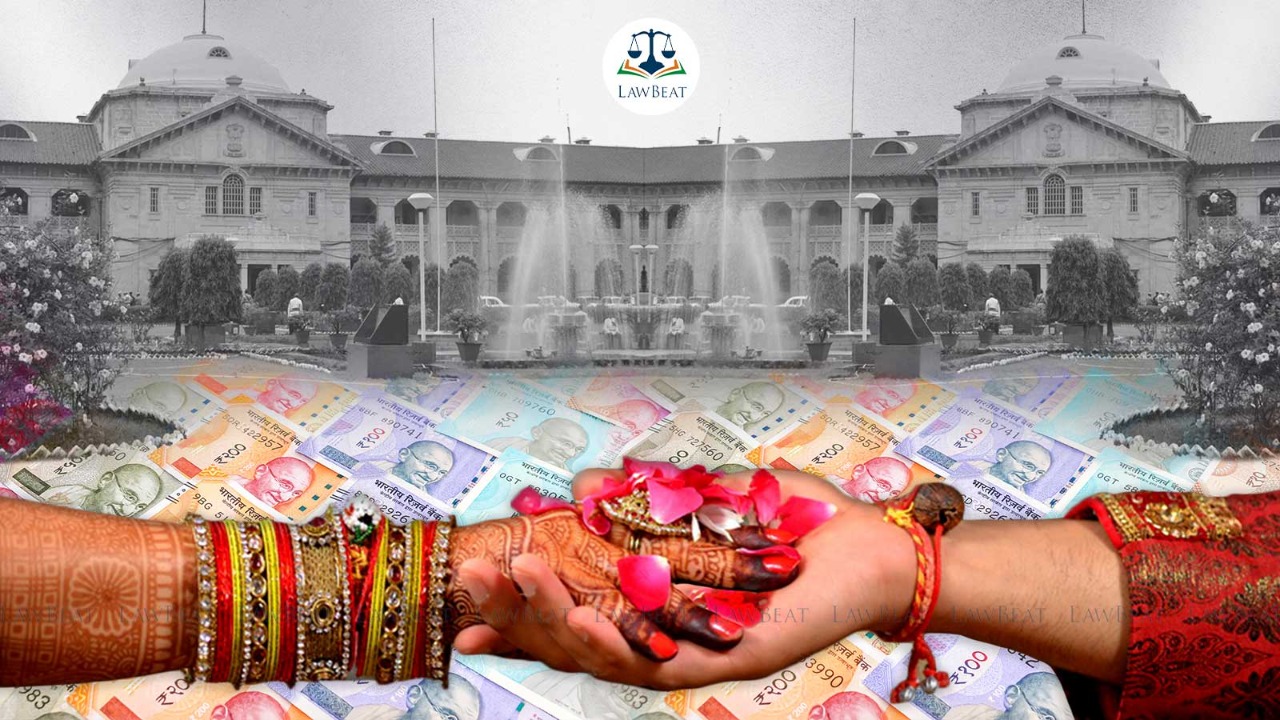Dowry Givers Admit Guilt Without Facing Prosecution: Allahabad HC Highlights Legal Loophole

Court observed that brides and families admitting to giving dowry escape prosecution, while only dowry recipients face legal repercussions, exposing a notable enforcement disparity
The Allahabad High Court has raised concerns over brides and their families openly admitting to giving dowry in first information reports (FIRs), despite the Dowry Prohibition Act, 1961 making it illegal to give or abet the giving of dowry.
Section 3 of the Act states that giving dowry is an offence, yet these individuals are not facing prosecution as under Section 7(3) of the Dowry Prohibition Act, those who give dowry are shielded from prosecution.
This legal provision creates a loophole where brides and their families, despite being offenders under the law, cannot be prosecuted. In contrast, only the recipients of dowry face legal consequences, highlighting a significant imbalance in the enforcement of the law, court highlighted.
The bench of Justice Vikram D Chauhan said that this is an alarming situation where citizens openly disregard the law by admitting to giving dowry in official statements.
The court has called on the executive to take effective measures to address this issue, emphasizing that the law against giving dowry must be respected and enforced to prevent it from becoming ineffective.
"It is for the executive to take effective measures so that the situation does not arise where the citizens openly disrespect the law laid down by the Parliament or State Legislature, otherwise, the law with regard to prohibition in giving dowry would be a dead letter," said the court.
Court also noted that the in most dowry disputes, the list of presents prepared in accordance with the Dowry Prohibition (maintenance of lists of presents to the Bride and Bride Groom) Rules, 1985 which needs to be furnished before the Dowry Prohibition Officer within one month from the date of marriage by either party to the marriage, was absent.
The investigating officers are not examining this aspect of matter when first information report is lodged under Dowry Prohibition Act, court pointed out.
Court emphasised that it is the State Government's responsibility to ensure that citizens are being encouraged for submission of such list and these lists are maintained by Dowry Prohibition Officer.
To tackle the issue, court issued a slew of directions which include:
1. The State Government must explain the non-implementation of Rule 10 of the 1999 Rules and 1985 Rules, and why marriage parties are not submitting lists to the Dowry Prohibition Officer. The government must also outline steps taken to encourage list submission.
2. The Chief Dowry Prohibition Officer must provide data on awareness programs, public hoardings, and citizen involvement in dowry prevention over the last two years.
3. The State Government must examine why dowry offences are not processed per the 1999 Rules and the application of Rule 6(4).
4. The State Government must consider the need to exercise powers under Section 8B(3) of the Dowry Prohibition Act.
5. The Chief Dowry Prohibition Officer must disclose the number of complaints received and prosecutions initiated under Rule 7 of the 1999 Rules in the last two years.
Further, court noted that sometimes, the dowry is given to use the undisclosed income or back money or to evade tax.
Regarding this, court directed the Director General of Police to file an affidavit in respect of following:
i) Investigation into the source of alleged dowry payments by the bride or her family to the groom or his family, especially when large cash amounts exceeding the Income Tax Act limit are involved.
ii) Inquiry into the utilization of dowry by the groom or his family.
iii) Recovery of proceeds of crime, particularly large cash amounts given as dowry, in accordance with Section 6 of the Dowry Prohibition Act, 1961, and their transfer to the wife.
Additionally, the State Government is tasked with exploring the possibility of displaying an anti-dowry campaign notice at marriage venues and promoting compliance with the Dowry Prohibition (Maintenance of Lists of Presents to the Bride and Bridegroom) Rules, 1985.
The court will hear the matter next on July 16, 2024.
Case Title: Ankit Singh And 3 Others v. State of U.P. and Another
